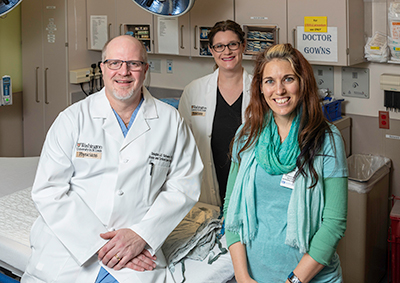Life Outside of Violence program helps individuals, community end cycle of violence
 Jane Doe* is a young woman with several children. For the majority of her life, she’s been in a violent environment. It began when she was a child and continued off and on as she became a young woman. For now, she’s violence-free. She and her children live with a relative, which has made a difference. She’s also participating in the Life Outside of Violence (LOV) program, which has opened new doors that could help her move outside violence permanently.
Jane Doe* is a young woman with several children. For the majority of her life, she’s been in a violent environment. It began when she was a child and continued off and on as she became a young woman. For now, she’s violence-free. She and her children live with a relative, which has made a difference. She’s also participating in the Life Outside of Violence (LOV) program, which has opened new doors that could help her move outside violence permanently.
The LOV program was launched in August 2018 by the Institute for Public Health at Washington University, as a city-wide effort to reduce gun violence. It is the first in the nation to incorporate three research universities — Washington University in St. Louis, Saint Louis University and the University of Missouri-St. Louis — and four hospitals — Barnes-Jewish Hospital, SSM Saint Louis University Hospital, St. Louis Children’s Hospital and SSM Cardinal Glennon Children’s Hospital. The program helps those harmed by stabbing, gunshot or assault receive the treatment, support and resources they need to find alternatives to end the cycle of violence in their lives.
Doug Schuerer, MD, FACS, BJH trauma service medical director, is one of the physicians responsible for shepherding the program at BJH and across the consortium. Dr. Schuerer has been a trauma surgeon at the hospital for 16 years and has seen firsthand the impact of a steady increase in violence. In 2002 at BJH, there were 1,250 trauma admissions; in 2017, there were more than 4,000 trauma admissions, and victims of violence consistently make up 20 percent of these numbers.
“There are many programs trying to reduce violence in the city. The way hospitals can help is to identify people injured by violence when they come through our facilities. To have success, we need a multi-faceted approach to violence,” Dr. Schuerer says.
Making a connection
Making an impact for people caught in the cycle of violence is what Abby Batha, LMSW, was hired to do. Batha was hand-picked to be the case manager for the program at BJH. Previously, she worked for BJC Behavioral Health for 10 years. Her experience has prepared her professionally for the job.
To help patients like Jane Doe, Batha has connected with a community mental health service, giving participants permanent case workers and psychiatrists. In addition, Batha has identified more resources, such as Social Security and Medicaid, that are offering assistance to participants, including cab fare to help with transportation to and from appointments.
But according to Batha, her role in the program is much more than administration. “I’ve been told by multiple participants that it’s equally important to have someone to sit and talk with, someone who checks in on them regularly, someone they can trust and who is relatable.”
Batha also sees her role as a life counselor and motivator. “Some of the participants are able to work,” she says. “They just need support and encouragement to get moving, such as assistance with a job application.”
Although Batha is the only one on the front line at BJH, there are many people behind the scenes working to make the program successful, with referrals primarily from the emergency department. Since August, 206 people have been referred to the LOV program, 38 are currently enrolled and participating, and 68 are being recruited to participate.
Finding a path
The free program is provided through a three-year, $1.6 million grant to the Institute for Public Health from Missouri Foundation for Health. Each case manager can work with 20 people in the program at one time with a total of 40 for the year. Following medical treatment at a participating hospital, participants work with their case manager for a minimum of six months up to one year. Once the program is completed, participants can be referred to other resources if necessary.
“The LOV program is another way to help people find and focus on a different path,” says Dr. Schuerer. “Years ago, trauma surgeons and physicians advocated for seatbelts and airbags to prevent deadly car crashes, and it has made a difference. With hospitals working together, this can be a model for cities to reduce injury from interpersonal violence as well.”
To find out more about enrollment and participation in the LOV program, contact Washington University Institute for Public Health, 314-327-6697, or email [email protected].
* The patient’s name has been changed.
3459